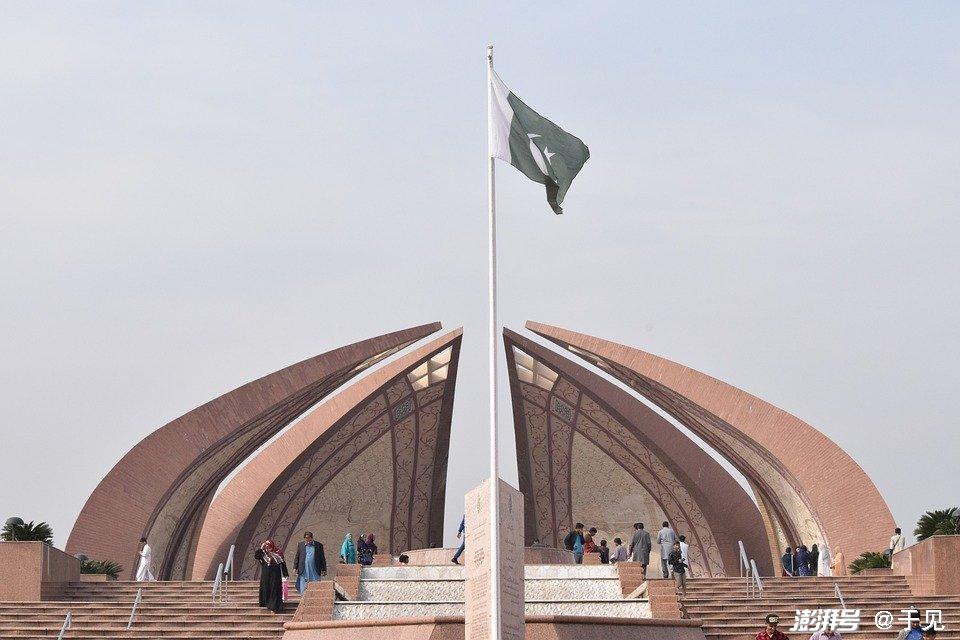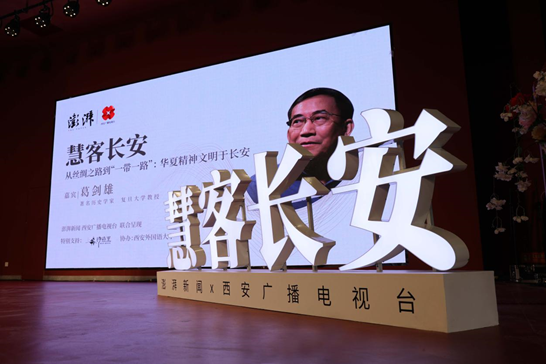How Is The Tanzania-Zambia Railway, Which Cost 1 Billion More Than 50 Years Ago? How Much Significance Does It Have To China?
How Is The Tanzania-Zambia Railway, Which Cost 1 Billion More Than 50 Years Ago? How Much Significance Does It Have To China?
She hugged a close brother, which was a simple and beautiful Africa. If we talk about the story between China and Africa, it is not just a diplomatic "shaking hands and talking about joy", but there are too many unknown twists and turns behind it.
The ancient Chinese charm is endless, and thousands of years of civilization spread all over the world. She hugged a close brother, which was a simple and beautiful Africa.

If we talk about the story between China and Africa, it is not just a diplomatic "shaking hands and talking about joy", but there are too many unknown twists and turns behind it. Like the young man Chen Xiaochen, he went to Africa alone ten years ago, chasing the roar of the "Tanzania-Zambia Railway", trying to find out how warm this once glorious railway line still has. The Tanzania-Zambia Railway has always been called the "Road to Freedom", but half a century has passed, and the dilapidated sleepers and rusty tracks are like weather-beaten old people, pulling everyone into the depths of history - how much is this railway worth?
Time falls back. More than fifty years ago, China's life was not too "luxury". But the country still spent huge amounts of money and laid a major artery between the two African countries. Tanzania and Zambia had just taken off their colonial hats at that time. The terrain of East Africa and South Africa was dangerous and complicated. Not to mention high-speed rail, even iron trains had to fight against the sky, the earth, and the life. China, a country far away in the East and was still "tightening its belt" at that time, agreed to aid construction. Innocence? Is it persistence? Or have other plans? Perhaps only those who have experienced that era understand that they only rely on one word of “brother” to support each other, and many decisions are made by gritting their teeth.

Why did China repair this line back then? Some people say that it is because copper - Zambia's copper mines need to be taken out. Everyone knows the principle of "If you want to be rich, build roads first." But in fact, it is much harder to cultivate than imagined. "Road" is not a few lines drawn on the map, it is the fate of several generations. There was no direct railway between Tanzania and Zambia at that time, and it was entirely up to foreign companies to control the lifeblood of transportation. Most of the mines transported can only be detoured and received. Not to mention getting rich, "saving your life" is lingering. It is not enough to have ideals, but the reality is: the two countries have empty pockets, and manpower and technology are all shortcomings. When I borrow money from Western powers and the World Bank, I not only refuse to give it to me, but also watch it coldly. That kind of embarrassing helplessness, whoever encounters it will be uncomfortable. In the end, there was only one distant friend left - China.
Looking back at the decision-making level of China at that time, Chairman Mao and Premier Zhou knew very well that this was a "diplomacy gamble." With political blockades outside and economic pressure inside, China must find allies in the global margins. And Asia, Africa and Latin America are the "poor brothers" who have been ignored by the world and have just gotten rid of their colonial minions. The two countries have been independent for a short time, and the ground is full of ruins, and they urgently need a lifeline that truly belongs to them. Therefore, a cooperation across the mainland was poured on cold water before the crying was heard. The outside world questioned: "Can you do it? Can you do it?" Many people even waited to see Chinese jokes. But who would have thought that these "iron troops" really took root in the African land step by step.

In 1970, the first batch of Chinese workers stepped on the shore of Shanghai. Don’t imagine the “Far Age of Heroes”, it’s actually a group of ordinary people, mingling with African workers in the shed on the construction site, sweating profusely. Under the scorching sun, there are dry skin and dizzy mind. A worker saw the heat waves in the African wilderness for the first time and shouted, "This is even more cruel than the Northwest!" No one would come here because of the distance. Management, technicians, workers are all the same - live in the same simple shed and eat the same bowl of rice.
There are many small episodes in the middle. For example, Chinese masters teach their dark-skinned workers to open machines, operate signals, and learn theory. Many African workers have not been to school for a few days, and they sound confused about the technical principles. The Chinese master was anxious and didn't yell or scream, so he patiently put his face in a straightforward manner and said it in the simplest words over and over again. Sometimes I complain, but never prejudice. For example, in that basketball game, whoever loses should drink water. Everyone actually understands in their hearts that relying on each other here is more important than anything else.

Later, the memories of local Africans were warm in these days. They said that Chinese workers were not here to "direct" them, but to work side by side with them. The Chinese grow their own grain, cook their own food, and treat others easily and rustic, which makes the "dividing of different levels" that capitalist countries are used to. Everyone is mixed together, sweat, dreams, and worries are all together.
Not all stories end with glamorous endings. In those steep valleys and dense forests, railway construction is extremely difficult. 70 Chinese engineers and workers eventually collapsed on African land. Some returned to their hometowns, and some were buried in the "Chinese Expert Cemetery" outside Dar es Salaam. Their tombstones may be rusty and blurred, but those days people remembered who built the steel bridge with their hands. During Qingming Festival, locals would place flowers in front of the tomb, even if they were just simple wild flowers, they were very solemn.

The Tanzania-Zambia Railway is more than 1,860 kilometers long, from the port of Dar es Salaam to the hinterland of Zambia. 320 bridges, 12 tunnels, and countless small stations connect industries and life like blood vessels. China not only laid rails, but also drove the trains on. That year, the first time I saw the "Oriental Red" motorcycle whizzing past the entrance of the village, the children in the village ran and shouted, and the female workers would stop the cloth and take a look. This railway brings not only the export of copper mines, but also a road to the future.
Time is forbidden. Decades have passed, the scorching sun is roasted, the wind and rain are invading, and the railway is gradually getting old. The once proud steam locomotive slowly turned into a "crunching" bone train. When Chen Xiaochen visited, whenever the carriage was shaking quickly, he would think to himself: How long can this road last? Once the freight volume of the Tanzania-Zambia railway was astonishing and the passenger flow was exploding. But once the Chinese aid team is withdrawn, management problems occur and maintenance becomes "demolition of the east wall and repairing the west wall." I only had to repair it for many years, and the parts were removed when the motorcycle was damaged, and the entire railway gradually lost its vitality.

What's worse is the talent gap. The older generation of workers learned skills from Chinese masters, but the newly hired young people didn't even understand how to drive a train, and some even dared to drive a train without a qualification certificate. Behind this, there is actually a power struggle between the management of the two countries - China originally wanted to manage it together, but the officials of both sides fought each other and no one cared about the long-term of the railway.
People sometimes ask: Is so much effort worth it? China is struggling to build aid, but foreigners cannot understand it. Some even say that this is a "loss business." But think more deeply, just like the elders in the family often say: "You can't just look at the present moment when doing things, but the key is to look at the long-term." The Tanzania-Zambia Railway not only opens up the commercial road of copper mines, but also the first time China has truly reached the center of the world, and "brother diplomacy" has a foothold. In the future, China can speak out on the international stage and restore the legitimate seat of the United Nations. These open and honest aid and friendship will be indispensable behind it.

Now the Tanzania-Zambia Railway is rusty, but its former glory should not be forgotten. China once again helped to repair the railway tracks, sent locomotives, and provided technology and talents. The two countries have also begun to take serious action on railway management, hoping to rejuvenate this "old man". The railway is not just a rail - it witnesses the passion, dilemma and unity of the past, is the root of China's friendship with Africa, and is the mark of the intertwined destiny.
Thinking of this, you can’t help asking: What can ensure that a road lasts for a long time? It is technology, management, people's hearts, and calmness towards failure. Who can say that the corn planted by the Chinese next to the railway tracks, the shouts of children chasing the train, and the deceased workers did not leave the truest common memory?

The Tanzania-Zambia Railway started with its ideals and was once in a helpless situation. We cannot predict what it will eventually become, but it once brought the people of the two continents closer, even if it was just a whistle, it was enough to withstand the storm for half of its life.
Sometimes, after all, the world's major events are just a few people who work hard and refuse to admit defeat. A railway can carry not only goods and passengers, but also a good intention that spans time and space. The Tanzania-Zambia Railway is still there, and Chen Xiaochen walks through it, just like we walk through our own youth, confused and firm. No one dares to guarantee when the next train will leave, but one day, even if it is too old, it will be repaired; if it is too misunderstandings will be dissolved - as long as people still hope.






